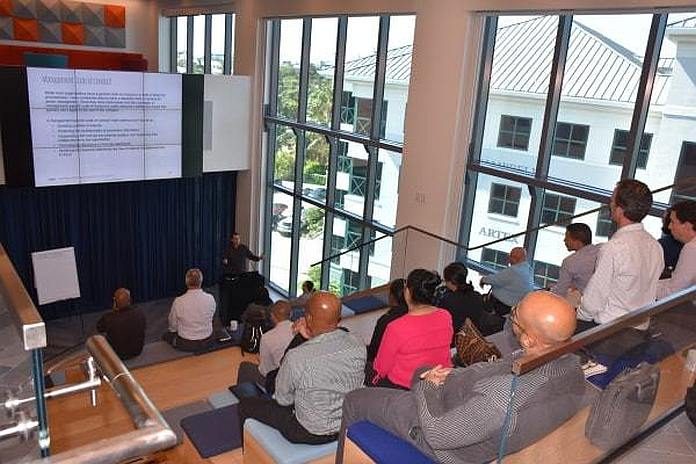GEORGE TOWN, Cayman Islands (CNS) – Over 100 civil servants have received training over the last month to help them detect and tackle fraud and corruption in government. Facilitated by consulting firm KPMG, the training aimed to provide a better understanding of the internal controls needed to prevent both, officials said. Participants included staff involved in the areas of accounting, procurement and asset management. It comes at a time when allegations about misconduct appear to be on the rise and there is still no sign of the long-awaited ethics law.
The first training session, presented to managers and department heads, focused on understanding risk and assessing an organisation’s exposure to risk. Some of the topics covered included cyber fraud, bribery and corruption, fraud prevention, data protection, digital forensics, contract and procurement fraud.
The second session was geared to people who have been in the ministry of employment and border control or the ministry of commerce, planning and infrastructure, which jointly organised the training, for over five years and had completed the training previously. This refresher training covered topics such as data protection, cyber fraud and data analytics.
The chief financial officer in the planning ministry, Carrol Cooper, said it underscored the commitment to staff training “to improve the way we detect, prevent and fight fraud”.
Justin Hislop, from the employment ministry, said, “It was great to hear from leading professionals in each of their respective fields, from cyber security to digital auditing, the training offered an in-depth analysis into new and emerging trends in global finance.”
He said he was interested to see how data security laws are being implemented and interpreted by both government and the private sector, “and exactly what ripple effects those decisions are having on the Cayman Islands as we move into the future of financing”.
The training is part of a wider effort across government to plug historic gaps when it comes to the potential for conflict, corruption and other crimes in public service. And while legislation, such as the procurement and whistle-blower laws and codes of conduct, have been rolled out over the last few years, many believe the missing but critical standard in public life law remains the most important piece of legislation to properly address public corruption.





